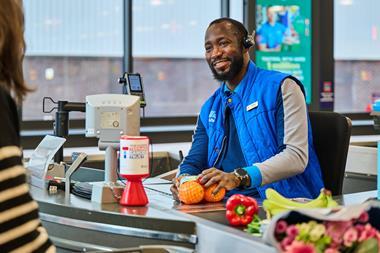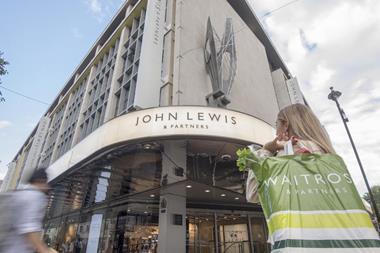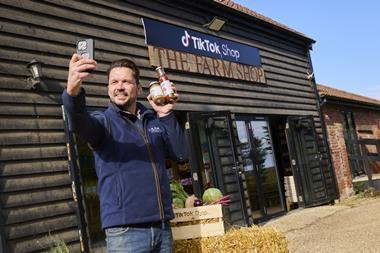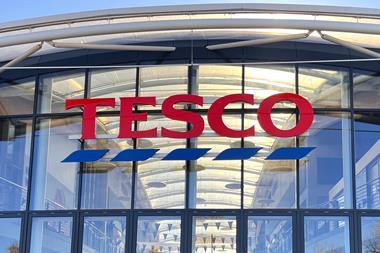Independent forecourt traders and c-store operators based in petrol stations are staring down the barrel of a gun as the price of fuel continues to soar to record levels.
Pump prices this week rocketed to an average of 95p per litre for unleaded petrol, although some forecourts have broken the £1-a-litre barrier.
Now there are fears that independent c-stores attached to petrol forecourts could be among the biggest losers as motorists are turned away by high pump prices and head for cheaper prices at supermarkets.
There are also concerns that independent retailers may still be forced to hike their prices further as the world price of oil threatens to continue rising.
Ray Holloway, director of the Petrol Retailers Association, said that retailers had no choice but to increase their prices.
“They have to ride out the storm and price increases are the only way to do this,” he said.
“As the prices go up, the profits come down and retailers are having to plough much more money into their businesses.
“Supermarkets are able to cover part of the cost of fuel operations through their store business but independents can’t.”
Holloway pointed out that 600 independent forecourts were forced to close last year and warned that many more were expected to have to close this year.
Almost two thirds of retailers involved in Dawson News’ focus groups say they have noticed a difference in the newspaper and magazine wholesaler’s service in the past year. Innovations introduced by the company include a scanning system for returns in all its magazine branches and a similar system tracking magazines from depot to shop.
Off-licence chain Wine Cellar is rolling out its Simply Food & Drinks convenience format to 11 former Booze Buster stores averaging 800 sq ft in size. A total of 152 other Booze Buster shops are being targeted for the new format.
It is only a matter of time before the UK suffers another major food scare on the scale of Sudan 1, according to a food safety expert. Speaking at the Chartered Institute of Environmental Health in Cardiff this week, Himmat Rai, director of Sentinel Safety Solutions, said manufacturers, processors and distributors were not taking the issue seriously enough. “Given that even a small-scale recall may cost £500,000, it is surprising that many businesses fail to plan for it.”
United Biscuits, maker of McVitie’s biscuits and KP nuts, reported a 15.7% increase in profits from £64.9m to £75.1m in half-year results to July 16. Turnover rose 6.3% to £613.2m.
Premier Foods says it is making “significant progress” in clearing up after February’s Sudan 1 product recall. The group said it had conducted a comprehensive ingredient risk review, introduced enhanced testing and changed some of its sourcing. Releasing interim results for the six months to July 2, it said total group sales had decreased by 3.9% to £409.2m. Pre-tax profit jumped from £200,000 to £18.3m.
Beth Brooks
Good for dawson
Booze roll-outs
food scare warning
United profits up
Premier progress
Pump prices this week rocketed to an average of 95p per litre for unleaded petrol, although some forecourts have broken the £1-a-litre barrier.
Now there are fears that independent c-stores attached to petrol forecourts could be among the biggest losers as motorists are turned away by high pump prices and head for cheaper prices at supermarkets.
There are also concerns that independent retailers may still be forced to hike their prices further as the world price of oil threatens to continue rising.
Ray Holloway, director of the Petrol Retailers Association, said that retailers had no choice but to increase their prices.
“They have to ride out the storm and price increases are the only way to do this,” he said.
“As the prices go up, the profits come down and retailers are having to plough much more money into their businesses.
“Supermarkets are able to cover part of the cost of fuel operations through their store business but independents can’t.”
Holloway pointed out that 600 independent forecourts were forced to close last year and warned that many more were expected to have to close this year.
Almost two thirds of retailers involved in Dawson News’ focus groups say they have noticed a difference in the newspaper and magazine wholesaler’s service in the past year. Innovations introduced by the company include a scanning system for returns in all its magazine branches and a similar system tracking magazines from depot to shop.
Off-licence chain Wine Cellar is rolling out its Simply Food & Drinks convenience format to 11 former Booze Buster stores averaging 800 sq ft in size. A total of 152 other Booze Buster shops are being targeted for the new format.
It is only a matter of time before the UK suffers another major food scare on the scale of Sudan 1, according to a food safety expert. Speaking at the Chartered Institute of Environmental Health in Cardiff this week, Himmat Rai, director of Sentinel Safety Solutions, said manufacturers, processors and distributors were not taking the issue seriously enough. “Given that even a small-scale recall may cost £500,000, it is surprising that many businesses fail to plan for it.”
United Biscuits, maker of McVitie’s biscuits and KP nuts, reported a 15.7% increase in profits from £64.9m to £75.1m in half-year results to July 16. Turnover rose 6.3% to £613.2m.
Premier Foods says it is making “significant progress” in clearing up after February’s Sudan 1 product recall. The group said it had conducted a comprehensive ingredient risk review, introduced enhanced testing and changed some of its sourcing. Releasing interim results for the six months to July 2, it said total group sales had decreased by 3.9% to £409.2m. Pre-tax profit jumped from £200,000 to £18.3m.
Beth Brooks
Good for dawson
Booze roll-outs
food scare warning
United profits up
Premier progress














No comments yet